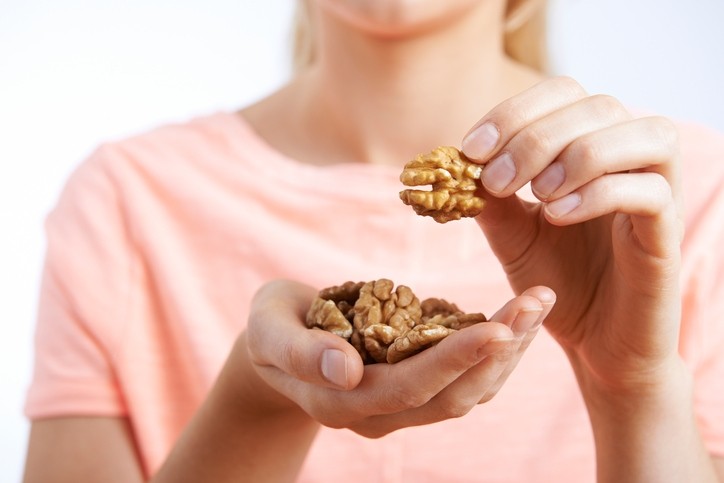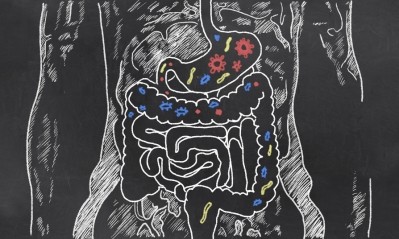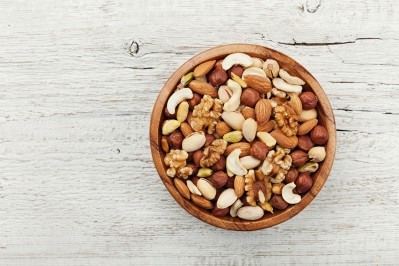Walnut consumption alters gastrointestinal microbiota, possible underlying mechanism of its health benefits, says study

“We aimed to assess the impact of walnut consumption on the human gastrointestinal microbiota and metabolic markers of health,” the authors wrote in their report, published yesterday in the Journal of Nutrition.
To do so, they compared fecal and blood samples from 18 healthy men and women for two three-week periods. If the participant was assigned a non-walnut diet in the first three weeks, that means he or she was assigned a walnut diet in the next three weeks, and vice versa.
What they found was that walnut consumption affected the composition and function of the human gastrointestinal microbiota, as well as reducing microbial derived, pro-inflammatory secondary bile acids and LDL cholesterol.
“These results suggest that the gastrointestinal microbiota may contribute to the underlying mechanisms of the beneficial health effects of walnut consumption,” they argued.
Results in the present study were new data crunched from a clinical trial that was first published in 2015 in the same journal, in which the researchers concluded that walnuts provide less available energy to healthy adults than predicted.
They reported that the lower energy was caused by reduced digestibility of macronutrients, escaping digestion in the small intestine. However, because they instead enter the large intestine, the researchers hypothesized that this provides substrates for fermentation by colonic microbiota.
“Our objective was to elucidate the effects of the reduced digestibility of walnuts on the fecal microbiota, fecal bile acids, and metabolic markers of health in healthy adults,” they wrote.
Study design
The USDA Agricultural Research Service and the California Walnut Commission, a trade group that represents walnut growers and handlers, funded the study.
Eight women and 10 men participated in the study. Body measurements, blood pressure, and fasting blood and urine samples were documented.
All participants ate a fully controlled base diet. They were randomized into two groups, one supplemented with 42 g of walnut halves and pieces daily, and the other without any walnuts. Participants stayed in their diet group for three weeks, before crossing over to the other diet group for another three weeks after a one-week washout period in between.
Results and significance
The researchers looked at differences in serum (lipids, glucose, inflammatory markers, and sterols) and fecal (microbial abundances and bile acids) at the end of each dietary treatment period.
They found that walnut consumption resulted in 49% to 160% higher relative abundance of Faecalibacterium, Clostridium, Dialister, and Roseburia compared to the control diet. The walnut diet also led to decreased abundances of Ruminococcus, Dorea, Oscillospira, and Bifidobacterium by 16% to 38%.
Additionally, serum analyses revealed that LDL cholesterol and the noncholesterol sterol concentrations were 7% and 6% lower after walnut consumption compared to the control.
“Although the consumption of dietary fiber and prebiotics have been shown to differentially affect the human gastrointestinal microbiome, there is a dearth of knowledge on the impact of specific whole foods on the human microbiota,” they wrote.
“These results suggest that the gastrointestinal microbiota may contribute to the underlying mechanisms of the beneficial health effects of walnut consumption, including cardiometabolic and gastrointestinal health.”
Learn more about pre- and probiotics
Probiota Americas (Miami, June 5-7) - brought to you by NutraIngredients-USA - will bring together leading experts to present the latest scientific, technical and market insights on pre- and probiotics.
Get full details HERE.
Source: The Journal of Nutrition
Published online, nxy004, https://doi.org/10.1093/jn/nxy004
Walnut Consumption Alters the Gastrointestinal Microbiota, Microbially Derived Secondary Bile Acids, and Health Markers in Healthy Adults: A Randomized Controlled Trial
Authors: Hannah D Holscher, et al.


















